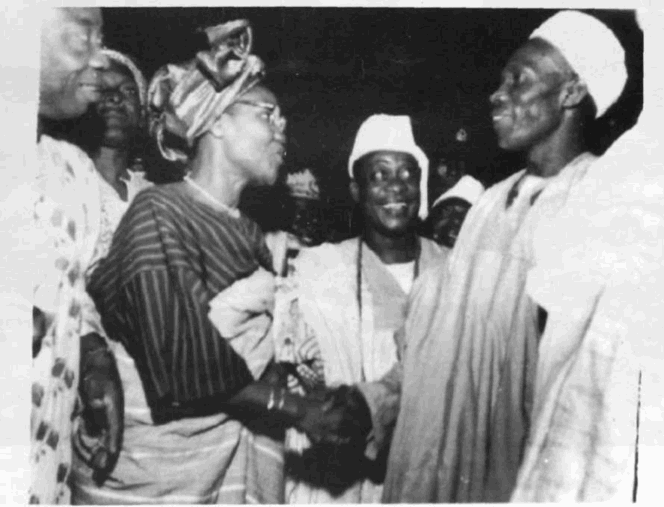There are no products in your shopping cart.
| 0 Items | £0.00 |


By Ayo Akinfe
(1) With today being Mother’s Day, I want to use the opportunity to discuss the vexed issue of the apolitical nature of the Nigerian woman. For me, it is one of the reasons why as a nation, we are not doing anywhere near as well as we should be
(2) As we all know, women are the anchors and hubs of society. Without them, the family unit simply grinds to a halt. This is more pronounced in rural areas where not having a mother condemns children to lives of unbelievable hardship. Rural children who lose their mothers at a young age basically spend the rest of their lives in hell
(3) For me, it is no coincidence that Rwanda, where 61% of its parliamentarians are women, is enjoying massive economic growth, is spearheading the African industrial revival and has some of the most socially progressive laws on the planet. In 2018, Rwanda enjoyed 7.2% GDP growth
(4) Now, we have just held elections but alas, the figures have not been encouraging. For instance, not one of our 36 governors are women and I find that totally unacceptable. Do you also know that women only make up 6% of Nigeria’s National Assembly?
(5) Look at that figures for the ratio of female parliamentarians worldwide and see how badly Nigeria is doing - Rwanda 61%, Cuba 53%, Mexico 48%, Sweden 46%, Namibia 46%, Mozambique 40%, South Africa 42%, Senegal 42%, Philippines 30%, Indonesia 20%, Saudi Arabia 20%, Malaysia 14%, Ghana 13%, Nigeria 6% and Kuwait 3%
(6) It surely must embarrass you all to realise that Saudi Arabia has a higher percentage of female parliamentarians than Nigeria. Tomorrow we will call them extremists but alas, we are failing to address our own prejudices. We are in this predicament simply because too many of our women are only interested in personal material wealth
(7) Nigeria has actually made a lot of progress in terms of female literacy. At the moment, adult female literacy is about 62%. For me, we ended the primordial negativity when the Gowon administration decided to found Federal Government Girls Colleges in the 1970s. Since then, female education has been on the up and up but hey, it is nowhere near uhuru
(8) Gender equality does not just mean the freedom to buy handbags, expensive geles, hold elaborate hen nights in Dubai and purchase expensive Gucci and Lui Vitton handbags. It also means closing the gap in areas such as politics, commerce, sports, innovation, etc
(9) When I look at the extravagant bashes some of our female old school associations hold, I just shake my head in despair. Is there any roadmap or is it just about enjoying themselves? For instance, I will challenge the following old school associations in the UK to tell us if they have ever set themselves targets with regards getting their members elected to the National Assembly - Methodist Girls High School Yaba, Reagan Baptist School Lagos, Queen’s College Yaba, St Anne’s College Ibadan, Anglican Girls Grammar School Lagos, FGGC Benin, Queens School Enugu, FGGC Bakori, Gbagada Girls High School Lagos, FGGC Owerri, Our Lady of Apostles College, etc. I have singled them out because I know they all hold expensive and elaborate parties. A misplaced priority if you ask me
(10) Pat Utomi once said that women are not under the same social pressures as men, so are not as inclined to steal public funds to marry numerous wives, acquire chieftaincy titles, build numerous houses, etc. Basically, what this means is that all those women’s groups failing to sponsor their members for election in Nigeria should not complain about corruption because their actions are partly responsible for the problem. It is over to you ladies. Maybe you should start by writing to Buhari today to insist that at least 30% of all his cabinet appointees are women